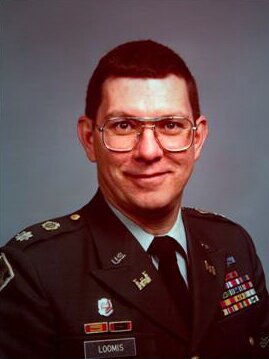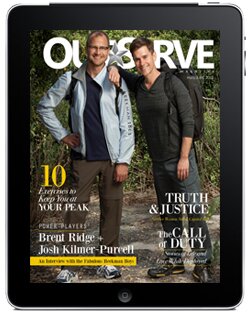American Veterans for Equal Rights
On the 20th of September, with members of American Veterans for Equal Rights (AVER) and OutServe leading the way, we saw the fruits of a long and difficult fight: the repeal of “Don’t Ask, Don’t Tell” (DADT).
We’re all familiar with the many stories of embarrassment and heartache that “Don’t Ask, Don’t Tell” caused for so many soldiers. Few but those targeted for discharge under DADT dared speak publicly. Bigotry against gays was the order of the day. Young men and women were threatened, some died, and many careers were lost. In 1996, I was one of those when I fought my discharge from the Army.
 When I enlisted in 1967, I understood that I might be somewhat different, but did not yet realize what it meant for me to be gay. Commissioned an Infantry Lieutenant out of Officer Candidate School (OCS), I enjoyed the physical and mental challenge, as well as the goal-oriented teamwork of military life. Within six months, I was an infantry platoon leader in the Central Highlands of Vietnam with the 4th Infantry Division. We patrolled the remote Ia Drang Valley along the Cambodian border, climbed through the rugged Chu Pa Mountains, and sweated across the booby-trap-infested South China Sea coast. Our platoon had each other’s back and became the most decorated in the company. I returned home with two Bronze Stars, a Purple Heart and an Air Medal.
When I enlisted in 1967, I understood that I might be somewhat different, but did not yet realize what it meant for me to be gay. Commissioned an Infantry Lieutenant out of Officer Candidate School (OCS), I enjoyed the physical and mental challenge, as well as the goal-oriented teamwork of military life. Within six months, I was an infantry platoon leader in the Central Highlands of Vietnam with the 4th Infantry Division. We patrolled the remote Ia Drang Valley along the Cambodian border, climbed through the rugged Chu Pa Mountains, and sweated across the booby-trap-infested South China Sea coast. Our platoon had each other’s back and became the most decorated in the company. I returned home with two Bronze Stars, a Purple Heart and an Air Medal.
Stateside, I chose to continue my service as a Company Commander twice, and as a battalion staff and executive officer. By then I realized I was gay, but carefully kept my private life separate from my military career. My performance evaluations clearly showed it never affected my work, neither in a support unit nor a unit in combat.
As a Lieutenant Colonel, I served as Chief of Military Education for all Army Reserves, developing a school reservation system that saved millions of dollars. While an inspector general, I conducted one of the first surveys showing there was more tolerance for gays than anyone at that time thought and that women were adversely affected by the prohibition against gays in the military. In 1993, with the passing of DADT, I made a decision, that, should my homosexuality be discovered, I would fight to stay in the Army. My resolve was soon tested.
At Fort Hood, Texas, I was Chief of Engineer War Plans for III Corps as we trained to deploy the 1st Cavalry Division and the 4th Infantry Division to the Middle East and South Korea. After being selected for promotion to Colonel, and on the night I was awarded a fourth Meritorious Service Medal, I came home to find my off-post house on fire. It was soon discovered that the fire was set by a former partner with whom I broke off a relationship a year before. We had taken private erotic photos and he said he had acted out of fear that the Army, his fellow soldiers and his family would find out he was gay. It was the intimidation of DADT which produced a fear of what might happen to him. It shook me with anger.
The stress was more bearable because friends, neighbors and fellow soldiers, gay and straight, helped salvage my property, all while I tensely waited for the Army to act on photos illegally confiscated by the civilian fire marshal showing that I was gay. They were turned over to military authorities, even though the local district attorney initially said it would require a court order (which was never obtained). From the night of that fire, I knew I was in a fight for my life. The Army used fabricated claims that I used “force, coercion or intimidation” in my relations. Even with errors and fabrications in their claims, the Army discharged me in the summer of 1997, just 5 days before I was eligible for a full 20-year retirement. My former partner was discharged not for arson, nor for homosexuality, but for failure to pay credit card debts.
 With the assistance of Servicemembers Legal Defense Network and my attorney David Sheldon, I opened my private life to the media and within a week my story ran on the front of the Dallas Morning News. I began to meet others who were fighting DADT. When Morley Safer of CBS interviewed me on 60 Minutes, we knew the public was becoming more interested in the problems of DADT.
With the assistance of Servicemembers Legal Defense Network and my attorney David Sheldon, I opened my private life to the media and within a week my story ran on the front of the Dallas Morning News. I began to meet others who were fighting DADT. When Morley Safer of CBS interviewed me on 60 Minutes, we knew the public was becoming more interested in the problems of DADT.
Finally, in 2005, we were the first to file challenges to DADT following the Lawrence v. Texas decision of the Supreme Court, ruling that the Texas sodomy law was unconstitutional. In Federal Court, we were assigned a conservative judge, but, if he had adhered to the law, as most conservatives claim they must, we would have won our case. The Army Board for Correction of Military Records had previously acknowledged the Army had no basis to claim “force, coercion or intimidation” since my former partner had stated three times during his interrogation that our relations were consensual. When the judge then found the Army had violated their own discharge rules, he decided for us on narrow grounds, so as to avoid setting precedent. He ordered me retired with back pay, and in an unusual act, ordered the Army to pay my attorneys fees. I could move on to fight DADT from outside the Army.
Slowly, our culture started changing as good soldiers and veterans spoke out for the right of gays to serve openly. The public began to realize gays were among our best soldiers and that DADT violated the integrity of our military. Politicians finally made repeal a reality.
Members of AVER themselves represent a history of the fight for gays’ right to serve openly in our military, and I am honored to be among them. I was a founding member of the New Mexico Chapter of AVER. As a national organization, AVER is the oldest LGBT veterans organization, having been formed in 1990 to fight for the right of gays to serve. It is a nonprofit, chapter-based association, dedicated to equal rights for all active duty members and veterans of the U.S. Armed Forces.
 At AVER’s 2011 National Convention in Albuquerque, months of work prepared this convention to identify new missions and goals for AVER in keeping with the new legal realities following the repeal of DADT. The convention was the first digitally linked across the country, allowing full participation by Skype of our members who could not attend in person. Capping the convention, we swore in our officers with proud World War II Navajo Code Talkers as witnesses. The following week, I travelled with several national board members to Las Vegas, Nevada to see the completion of an eighteen-year journey through DADT by participating in the first OutServe Armed Forces Leadership Summite which AVER co-sponsored. At the final OutServe banquet, the room was full of young openly gay heroes on active duty alongside their mentors and mainstays in our fight to serve openly.
At AVER’s 2011 National Convention in Albuquerque, months of work prepared this convention to identify new missions and goals for AVER in keeping with the new legal realities following the repeal of DADT. The convention was the first digitally linked across the country, allowing full participation by Skype of our members who could not attend in person. Capping the convention, we swore in our officers with proud World War II Navajo Code Talkers as witnesses. The following week, I travelled with several national board members to Las Vegas, Nevada to see the completion of an eighteen-year journey through DADT by participating in the first OutServe Armed Forces Leadership Summite which AVER co-sponsored. At the final OutServe banquet, the room was full of young openly gay heroes on active duty alongside their mentors and mainstays in our fight to serve openly.
When most on active duty could not openly fight, AVER was critical to our public fight. While working with SLDN, and more recently OutServe, one door was closed on a difficult past while another was proudly opened to our promising future. AVER has publicly spoken for our brothers and sisters in uniform and visited countless members of Congress to petition for our rights and for all veterans’ access to Veterans Administration health and benefits programs.
The essential “price of freedom is eternal vigilance.” There are those who would “repeal” the repeal of DADT, but if we man the political watch towers together, that is unlikely. The Defense of Marriage Act must be repealed before our service members and partners have the complete equality they deserve. Article 125 of the Uniform Code of Military Justice must be amended to remove consensual sodomy from its prohibitions. We can, with perseverance, ensure this happens. This is one proud old soldier who will continue to do his part.
In the dust and mud of Vietnam, and in the sands of the Middle East, soldiers huddled against each other as rounds sailed toward their positions. No one asked if the soldier beside them was gay, only if they had their helmet on, rifle ready, and mind clear. Today, we judge every soldier, straight or gay, not by the gender of the person they love, but by how well they do their job and whether they succeed in their mission. We all won this one for our team and for our nation, and our nation is better for it.







